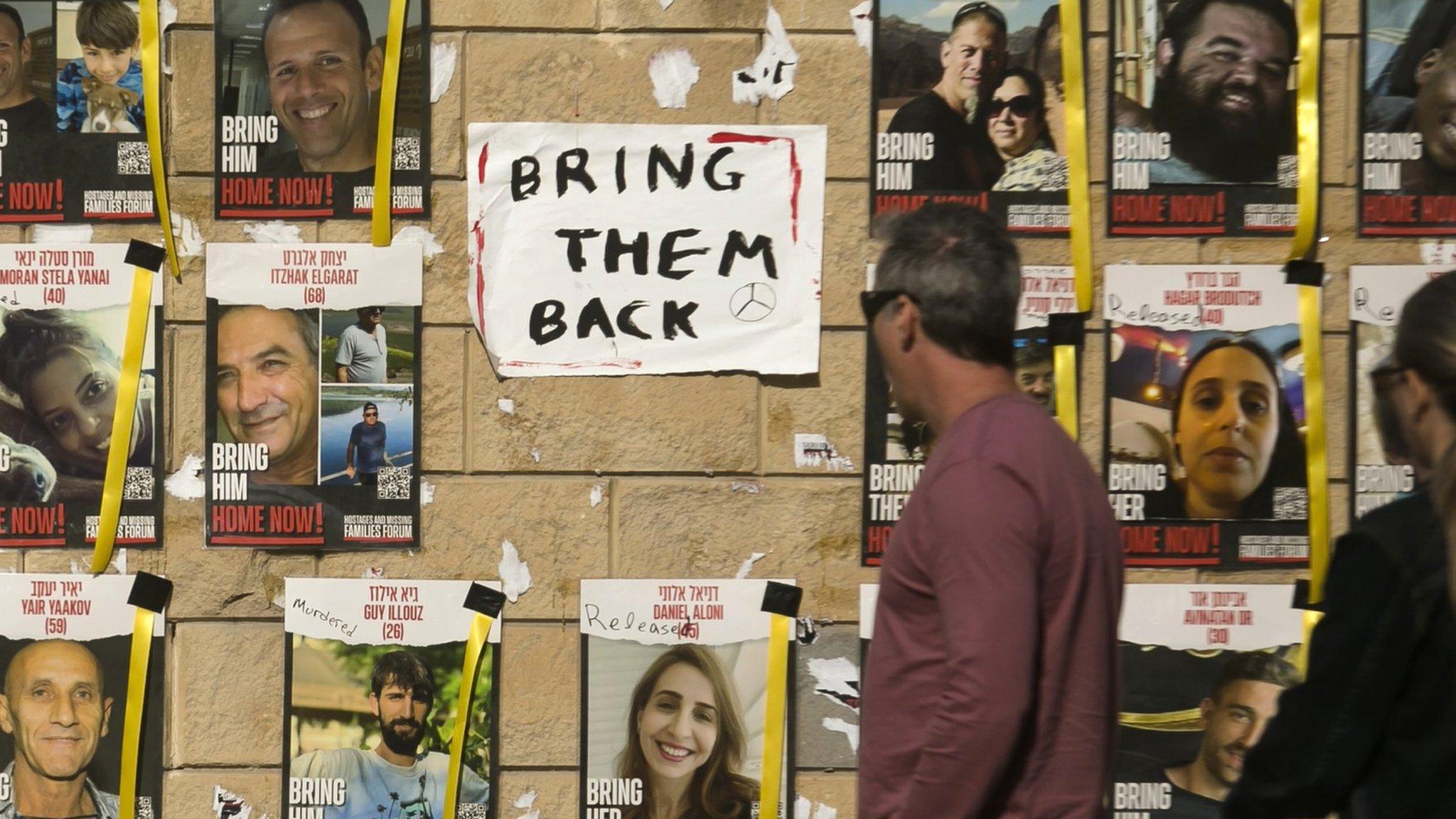Israel-Gaza war: US backs UN Security Council vote on Gaza aid boost
- Published
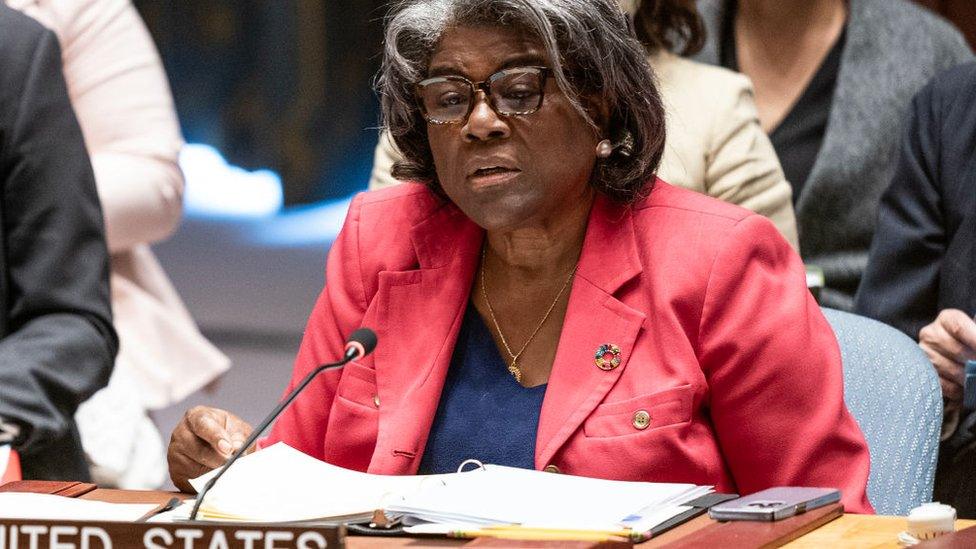
US Ambassador Linda Thomas-Greenfield told reporters the draft has US "support"
The UN Security Council is moving closer to a vote on humanitarian aid for Gaza after the US expressed support for the latest draft resolution.
The vote, now delayed until Friday, had been in limbo after the US voiced "widespread concerns" with a draft.
Washington had said it was concerned the resolution, put forward by the United Arab Emirates, could "actually slow down" aid into Gaza.
The latest announcement from the US comes after some two weeks of talks.
All week, the Security Council has repeatedly postponed the draft resolution aimed at bringing in some form of ceasefire, as wrangling continued over the language.
The original draft called for a sustainable cessation of hostilities, but the final version calls for creating the conditions for one.
It no longer calls for the use of all land, sea and air routes for deliveries - just all available routes. It still creates a mechanism to accelerate aid - but makes clear that's in consultation with relevant parties such as Israel.
Emerging from a closed-door session on Thursday night, US Ambassador Linda Thomas-Greenfield rejected claims the latest draft had been watered down, arguing it is "a very strong resolution".
She called it "a resolution that we can support", but declined to say if the US would vote 'yes' or abstain.
The key sticking point on Thursday appeared to be over the text's proposal to have a UN mechanism to monitor aid into Gaza - something the Arab group of nations insisted must be part of any meaningful resolution.
But the US said that could take away Israel's control of the screening process - and it asked for another delay to allow time for discussions with Egypt on how such a monitoring mechanism could work for all parties.
Currently, Israel monitors all aid and fuel deliveries to Gaza.
Earlier this month, the majority of the Security Council - 13 of 15 members - supported a resolution calling for an immediate ceasefire in Gaza, but the US vetoed it and the UK abstained. The US, like Israel, has objected that a ceasefire would benefit Hamas - and instead the US supports proposed pauses in fighting.
But since then, pressure has been growing for fighting to be paused. Earlier this week, Hamas said the number of people killed in Gaza in 10 weeks of fighting had passed 20,000.
On Thursday, the UN's World Food Programme warned that Gaza was at risk of famine if the war continued.

The UN says almost 1.9 million people in Gaza are estimated to be displaced by the war
WFP spokesperson Shaza Moghraby said: "We cannot wait for famine to be declared before we act.
"We need an immediate humanitarian ceasefire, the opening of all border crossings and the resumption of commercial cargo to provide relief, put an end to the suffering and avert the very serious threat of famine."
Talks had been taking place in Egypt to reach a new truce - similar to the week-long pause in fighting last month that saw hostages released.
But on Thursday they suffered a setback when Hamas said it would not agree to a release of some hostages in exchange for a partial ceasefire.
It said Palestinian groups had rejected the prospect of more hostages being released until Israel agrees to end the war. Israel has repeatedly rejected a permanent ceasefire with Hamas.
More than 240 Israeli hostages were captured on 7 October when Hamas broke through the heavily guarded perimeter with Israel, killing 1,200 people. A total of 110 hostages were released in the truce last month.
- Published24 August 2017
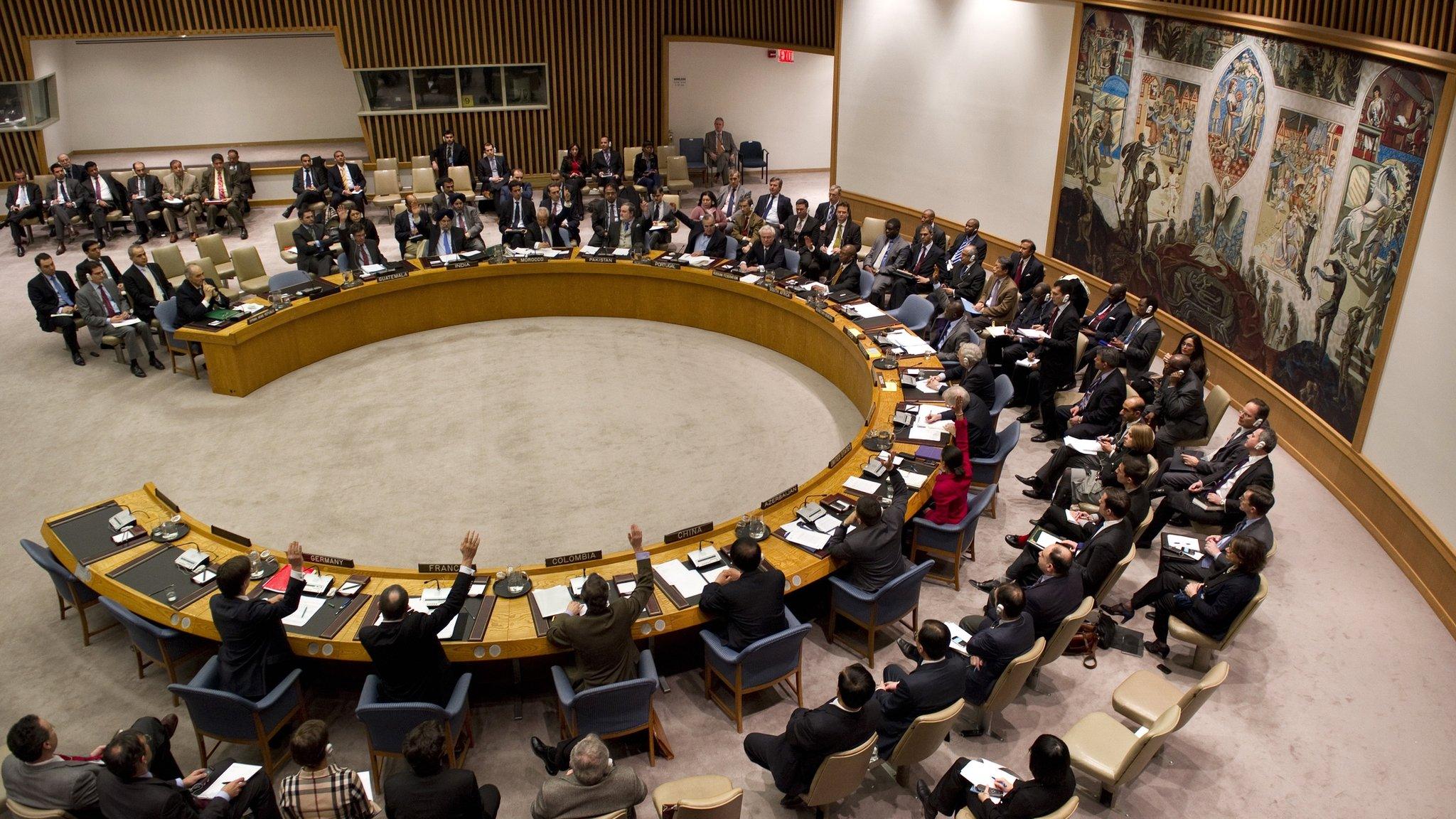
- Published20 December 2023
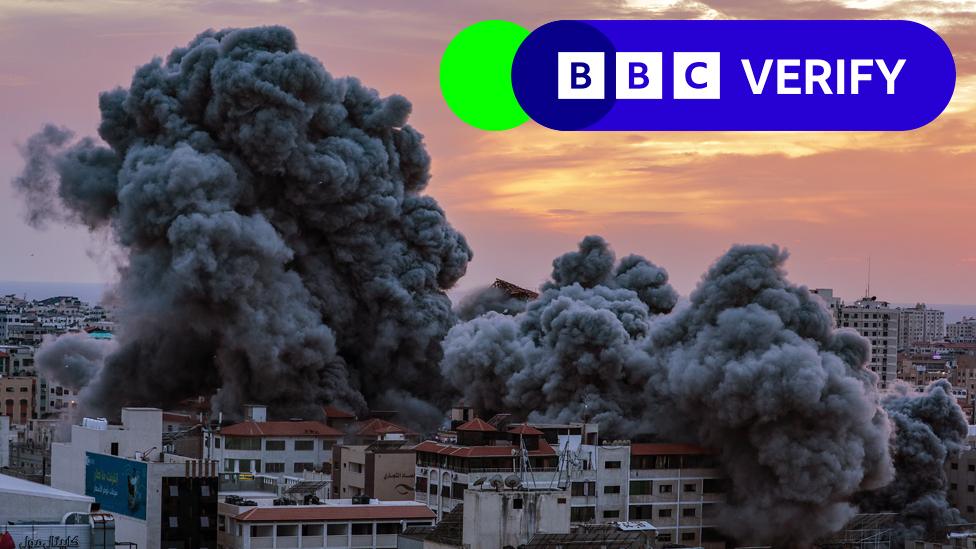
- Published20 December 2023
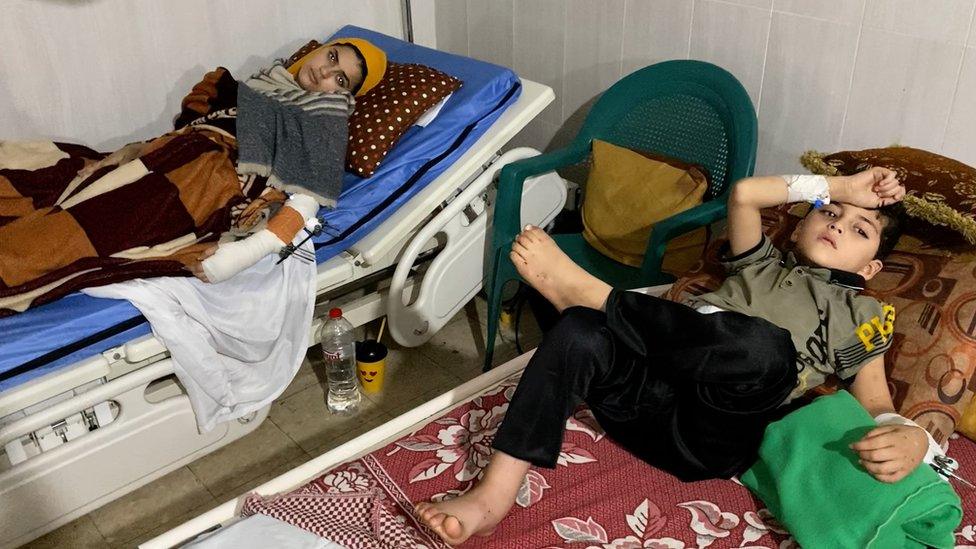
- Published20 December 2023
